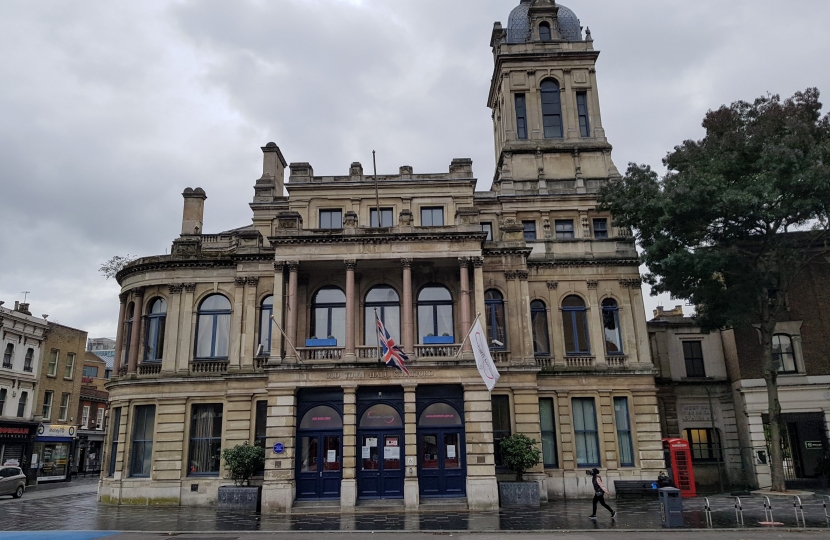
Families that have been hardest hit by the pandemic and need extra support this winter with food and bills will benefit from a new £170 million scheme unveiled by the Government.
The Covid Winter Grant Scheme will see councils across England share £170 million in additional, ring-fenced funding to help vulnerable families and individuals, with Newham receiving £1,354,166.89.
This will prevent children from going hungry this winter and ensure local families get the help they need. It builds on the £63 million already provided to councils this year to assist those struggling to buy food and essentials.
A further £220 million will be invested in extending the Holiday and Food Programme until next Christmas, meaning that all children eligible for Free School Meals will have the option to join a holiday-time programme that provides healthy food and fun activities during the summer, Christmas and Easter holidays next year.
Commenting, Nick Vandyke, the local candidate for the London Assembly, said:
No child should ever go hungry, and the extra £1,354,166.89 for Newham will ensure local families that need extra support with food and bills this winter can access it, which is very welcome news.
I'm also pleased that the Prime Minister has announced the extension of the Holiday Activities and Food programme, which provides healthy food and activities for children during the school holidays and has a massive impact on disadvantaged young people in our community, to cover Easter, Summer and Christmas next year.
Investing in children's future is central to the Conservative Party's mission to level up and extend opportunity across the country, and with this additional support we can prevent the hunger we know is so damaging to a child's life chances.
To support people during this challenging time, the Conservative government has invested more than £200 billion to protect people's jobs and incomes through the furlough scheme, grants for the self-employed and other support for business and a £9.3 billion injection to strengthen the welfare safety net this year.
Commenting, Work and Pensions Secretary Thérèse Coffey said:
We want to make sure vulnerable people are cared for throughout this difficult time and, above all, no one should go hungry or be unable to pay their bills this winter.
We know this has been a challenging time for many and we have consistently supported the lowest-paid families, protecting 9 million jobs with furlough and boosting welfare support by £9.3 billion.
This package builds on that support and by extending our successful Holiday Activities and Food programme as well as funding a £170 million Covid Winter Grant Scheme to ensure families get the help they need.
Notes
- Giving councils £170 million to ensure vulnerable households don't go hungry this winter. Councils will get an extra £170 million via our Covid Winter Grant Scheme, with at least 80% of this earmarked to support hardest-hit families with the cost of food and bills. This builds on the £63 million provided to councils earlier this year to assist those struggling to afford food and essentials. (Department for Work and Pensions, Press Release, 8 November 2020; Ministry of Housing, Communities and Local Government, Press Release, 11 June 2020)
- Extending the Holiday Activities and Food Programme until Christmas 2021 and funding food distribution charities. We're investing £220 million – more than the existing funding allocated to the programme. This will mean all children eligible for Free School Meals will have the option to join a holiday-time programme that provides healthy food and enriching activities during the summer, Christmas and Easter holidays. We will also boost Healthy Start payments from £3.10 to £4.25 from April 2021 and have pledged additional funding of £16m for food distribution charities.
- Giving those who need extra support more money through the welfare system. We've boosted the Universal Credit standard allowance and Working Tax Credit by £1,000 per year for 12 months, part of a £9.3 billion increase to the welfare safety net. This built on the 1.7 per cent rise in the value of working age benefits that came into effect in April, benefitting around 2.5 million households. Those on low incomes required to self-isolate can also claim £500 payments, if they are unable to work from home. (Hansard, 19 October 2020, vol.683; Independent, 2 April 2020; Prime Minister's Office, Press release, 20 September 2020, )
- Increasing support with housing costs, so households have more money to spend on their priorities. We have increased local housing allowance rates for housing benefit and universal credit claimants to the 30th percentile of local rents, worth on average £600 per year, at a total cost of almost £1 billion. Families that are struggling to make ends meet can also access mortgage holidays and support with their council tax bills. (Hansard, 11 May 2020, vol.676; Hansard, WA, 21 October 2020; Ministry of Housing, Communities and Local Government, Guidance, 24 March 2020)
- Helping people with the cost of living by keeping taxes low and tackling low pay. The national living wage received its largest ever cash boost in April – increasing by 6.2 per cent to £8.72. This meant an annual pay rise of £930 for a full-time worker on the national living wage, and of £3,600 since its introduction in 2016. Together our changes to the national living wage, income tax and National Insurance mean the lowest-paid working full time could be £5,200 better off than 2010, in real terms. (Office for National Statistics, Low and high pay in the UK, 30 October 2019; HM Treasury, Press release, 31 December 2019; HM Treasury, Budget 2020, 12 March 2020)


